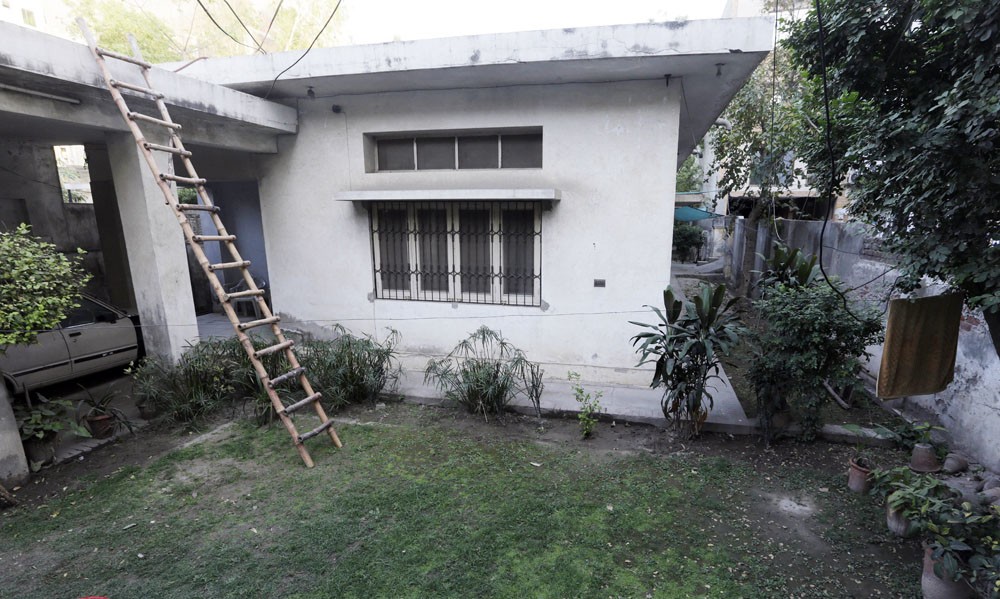
Noted Urdu writer’s house on Ferozepur Road, where he spent almost 50 years of his life, is being fought over for possession

Intizar Husain’s is a name literally revered by lovers of Urdu fiction. Although he is no more, his works and his person shall forever remain a source of inspiration for his readers. Incidentally, the place where the only Urdu novelist to have been shortlisted for a Man Booker Prize (2013) lived for most of his life, is being fought over for possession.
It’s a dainty looking structure of a house on Ferozepur Road. Husain is believed to have lived here for well over 50 years. Naturally, the building is home to his belongings, the most prominent being his rare collection of books, all of which make the place worth preserving.
The question of ownership of the house came up soon after the great fiction writer’s demise in February this year. There are conflicting views that one has been hearing all this while. According to Masood Ashar, one of Intizar Husain’s longtime companions, "He never owned this house. Aliya Begum [his wife] did. She was the legal owner [of the house]."
For the information of the readers, Aliya Begum passed away years ago.
The issue of possession of the house is becoming complicated by the day. The current tenants have moved court, stating that Husain handed down the rightful ownership of the place to them sometime before his death. No immediate family member or close aide is ready to acknowledge this fact. "We are unsure about the court claim," states Gulnar, a close acquaintance and a frequenter to Husain’s place. There is a streak of sadness in her tone.
"However, what we do know is that Intizar spent a major part of his life in this house and, therefore, something needs to be done to preserve this place."
Zahid Dar’s reaction, on the other hand, was quite baffling. When asked to comment on the issue, the dear friend of Husain murmured, "I know nothing about it!" A long silence followed.
Legal matters aside, there is a consensus among Intizar Husain’s fans and publishers that his house needs to be preserved properly as his life stories are embedded in it. To quote Ashar, "It is not difficult for the authorities to intervene and settle the matter.
"Carving a museum out of the place is one popular suggestion that has been made. The government also announced an Intizar Husain Award which is certainly laudable. But it should do more."
There are a number of initiatives that have already been taken in this regard. For instance, Nairang Art Gallery, which was one of Husain’s favourite meeting points other than Pak Tea House, has devoted an entire space in the late writer’s memory. It is aptly called ‘Gosha-e-Intizar Husain’.
According to Masood Ashar, Government College University (GCU) also wishes to include Husain’s book collection in its library.
On a personal level, too, there are people who would like to preserve the smallest of memories they have of Intizar Husain.
Gulnar is worried that if a museum is set up or a separate building is erected in Husain’s memory, you don’t know whether it shall be maintained well. Her concern is justified, considering how museums have commonly fallen into neglect. As Ashar puts it, "Punjab University dedicated a wing to Sajjad Bakir Rizvi. The place was doing well for only as long as he lived!"
Similarly, Allama Iqbal Museum or Javed Manzil -- the house where ‘Shair-e-Mashriq’ lived -- is a sad picture of neglect, with its damaged ceilings and a forsaken structure.